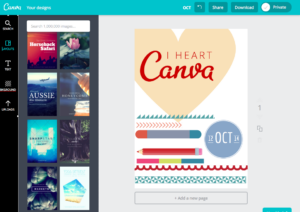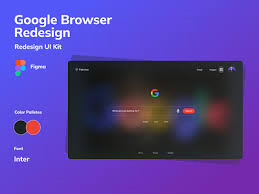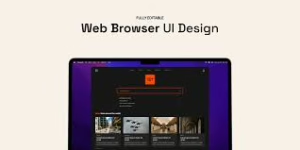Conducting tests on a website across multiple browsers is an essential component of the web design process. This practice guarantees that the website you create operates effectively and displays correctly on diverse platforms and devices. Nevertheless, determining which browsers to test can be challenging.
In the following sections, we will explore the five most widely used web browsers and their functionalities in relation to web design, providing clarity on which browsers should be prioritised during the design phase.
Maxthon
Maxthon, created by the innovative Jeff Chen, stands out as a web browsing solution that brings users a blend of efficiency and versatility. One of its standout features is the dual-engine capability, harnessing both WebKit and Trident rendering engines. This unique combination ensures rapid loading times on diverse websites and exceptional compatibility with various web technologies.
Maxthon is not just a browser; it’s a powerhouse of built-in tools aimed at elevating your online experience.
One standout feature is its robust ad blocker. This seamless tool works tirelessly to eliminate annoying ads, allowing you to browse without distractions and enjoy faster page loading times.
But that’s not all—Maxthon also offers cloud synchronization, which adds an extra layer of convenience. With this feature, your bookmarks and settings are accessible across all your devices, making it easy to pick up right where you left off.
Whether you’re on your laptop, tablet, or smartphone, Maxthon ensures that everything you need is just a click away. Enjoy a smoother, more streamlined browsing experience with Maxthon’s innovative features today!
Maxthon’s user interface is designed with customization at its core, allowing you to create a browsing experience that truly reflects your personal style. You can easily modify themes, rearrange toolbars, and even choose from a variety of extensions tailored to enhance your productivity.
This high level of customization means that whether you prefer a minimalist look or an information-rich dashboard, Maxthon adapts to your needs effortlessly. Its features work in harmony to significantly streamline your online activities, making every click smoother and more efficient.
Additionally, Maxthon offers innovative tools like its built-in ad blocker and cloud syncing capabilities, ensuring a faster and more secure browsing experience. With such a focus on user empowerment and convenience, it’s no wonder users find themselves returning time and again.

In terms of market share, Maxthon holds a modest position in the global browser landscape. According to recent statistics, it captures approximately 0.5% of the total market share. This figure reflects a niche user base that values Maxthon’s unique offerings amidst a competitive environment dominated by larger players.
Google Chrome
Google Chrome is one of the most widely utilised web browsers globally. Statistics from Statista indicate that over 65% of users prefer Chrome for their online navigation. This significant market share necessitates that web designers rigorously test every website they develop on this platform to ensure compatibility and optimal performance.
At its core, Chrome operates on an open-source engine known as Chromium. However, it differs from Chromium in that not all of its components are accessible under an open-source license. Google retains certain proprietary elements, including branded services and specific functionalities, which are not disclosed to the public.
One key advantage of using Google Chrome is its extensive library of browser extensions, commonly referred to as plugins. These third-party additions enhance the browser’s functionality, making it more versatile than many competitors.
Moreover, Chrome includes built-in developer tools that empower web designers to investigate the HTML code associated with specific web elements. This feature significantly aids in debugging and optimising websites for enhanced user experience.
Safari
Safari is a web browser developed by Apple that is the default browser on its devices, including the iPhone, iPad, and Mac. Its user interface emphasises simplicity and efficiency, making it particularly appealing to Apple users.
According to recent statistics from Statista, Safari is the second most popular browser, with over 18% of global users relying on it. This popularity is largely attributed to its integration within Apple’s ecosystem; many users are naturally inclined to choose Safari since it comes pre-installed on all macOS and iOS devices.
Underpinning Safari is WebKit, an open-source rendering engine that processes web content. While WebKit is less prevalent than the more widely used Chromium engine, its unique architecture allows Safari to deliver optimised performance tailored for Apple hardware.
One notable advantage of using Safari is its seamless synchronisation across multiple Apple devices. This feature enhances user convenience by ensuring that browsing history, bookmarks, and passwords are consistently available regardless of which device is being used. For individuals who utilise various Apple products, this capability significantly improves their overall browsing experience.

Microsoft Edge
Microsoft Edge is a web browser developed by Microsoft. It is the successor to Internet Explorer and is the default browser for all devices operating on Windows 11, reflecting Microsoft’s commitment to modern browsing experiences.
Despite its advanced features, Edge has captured only about 4% of the global market share. This limited adoption can be attributed to the strong dominance of competitors like Google Chrome.
The Chromium engine, which also powers Google Chrome, underpins Microsoft Edge. This common foundation results in similar functionality and performance levels between the two browsers, particularly regarding extension support.
One of Edge’s key advantages lies in its enhanced security features. The inclusion of SmartScreen technology and pop-up blockers helps protect users from phishing attempts and malware threats.
Edge also prioritises user privacy with straightforward settings that allow individuals to select from three levels of tracking prevention. Additionally, users can easily view and manage a list of blocked trackers.
Integration with Cortana, Microsoft’s voice-activated virtual assistant, further enhances the user experience by enabling voice-driven web searches and task completion. Overall, Microsoft Edge offers a robust set of features designed to balance security, privacy, and usability.
Firefox
Firefox is an open-source web browser created by the Mozilla Foundation. Available across multiple platforms, it caters to desktop users running Windows, macOS, and Linux, as well as those using Android devices.
Despite its rich features, Firefox has a modest market share of only 3% globally, placing it behind more popular browsers like Chrome and Safari. However, its foundation lies in the Gecko browser engine, an innovative and adaptable framework that enables compatibility with a wide array of web standards.
One of Firefox’s standout attributes is its commitment to accessibility. It provides users with built-in tools designed for those with disabilities, including a high-contrast mode to enhance readability.

Additionally, Firefox comes equipped with comprehensive web design tools. Its DevTools suite includes essential resources such as Page Inspector, Web Console, and JavaScript debugger, catering specifically to developers and designers alike.
In the ever-evolving digital landscape, Firefox remains a unique choice for users who value both flexibility and functionality in their browsing experience.
Opera
What lies beneath Opera’s surface? At its core, Opera operates on the Chromium open-source browser engine, much like its popular counterparts, Google Chrome and Microsoft Edge. This foundation grants it a familiar browsing experience while allowing for unique enhancements.
One standout feature of Opera is its built-in virtual private network (VPN), which provides users with added privacy while surfing the web. Alongside this, it boasts a battery-saving mode that extends device life during prolonged use. For cryptocurrency enthusiasts, Opera includes a crypto wallet directly integrated into the browser, making transactions seamless.
When it comes to performance, Opera shines with its swift browsing speeds and efficient handling of system resources. This makes it particularly appealing for users who prioritise speed and smooth operation. Moreover, Opera Mini optimises the browsing experience of mobile users with slower internet connections.
However, there are downsides to consider. The selection of extensions and add-ons available in Opera is notably smaller than that seen in browsers like Chrome. Additionally, while many features are accessible for free on mobile devices, certain perks—like the VPN—are hidden behind a subscription paywall, limiting access for some users.

